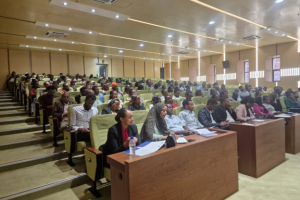BY BETELHEM BEDLU
Being sympathetic and concerned for the comfort of other fellow citizens and giving a lending hand does not entail being a well-heeled or affluent person. Rather, it requires having kind heart, be compassionate and sympathetic to the needs of others.
These days, being considerate to those less fortunate and lending a helping hand has become an increasingly important act as life is becoming challenging and more tougher than before slipping more people into economic despair, health and social crisis.
In fact, helping each other and supporting needy people is not a new experience for Ethiopians; rather, it was the long established culture of them.
The kind and compassionate acts of Abebech Gobena, “Africa’s Mother Theresa”, and founder of Abebech Gobena Children’s Care and Development Association, Binyam Belete, founder of the Mekedonians Humanitarian Association (MHA), Melese Ayele founder of the Gergesenon Association for Supporting People with Mental Disorder and Muday Metiku, founder of Muday Charity Organization are among the few showcases that demonstrate Ethiopians.
Even these days, there are many people whose principal purpose in life is helping others-show compassion and love to the marginalized section of the society and always available to help the deprived ones in every possible way they can.
It is not surprising to see a note written behind minibuses or Lada taxies that indicates free services for patients suffering from chronic kidney diseases and undertaking dialysis, pregnant women as well as for those who lead their lives by generating responsible citizens-teachers.
If you are someone who often uses a taxi that makes its first destination Ambassador and heads to Arat Kilo or, if by any chance, got the opportunity to get in to a taxi that has a notice written in Amharic language and posted at the bottom of it saying, “The world is built on wisdom.
The father and mother of wisdom are teachers. I respect teaching profession. Teachers with only showing your ID can get free transportation service,” your guess would probably be right.
Nikodimos Samuel, who is the owner and driver of a taxi, has inspired many to exercise social responsibilities in their profession. Nikodimos has studied Theology and Theatrical Art and currently studying Sociology.
In his several interviews with local media, he has emphasized his deep respect and admire for the teaching profession as it is the base for other professions.
He believes that no matter in what kind of different profession we are in, every one directly or indirectly have been taught by a teacher thus, the profession is the head of each profession.
With this thinking, six months after he started working in the taxi, he began providing free service for individuals whose profession is teaching. Not only did he not charge teachers but he has also started doing the same thing for elderly people and persons with disabilities.
One common thing that many of his fellow drivers agree is that his friends are books. He is fond of reading. More interestingly, he believes that what he is doing is not for the benefits of others; but for himself.
Belay Mengesha, residence of Addis Ababa, is the other volunteer who is serving those patients suffering from diabetics and kidney failure by giving them free transport service.
Belay, as he utters himself and others speak for him, when he receives the call from the patients, without a single hesitation, drives directly to their places and offer transport service to and from hospital freely. His deeds, unquestionably, secure the lives of many patients and lessen their own and families’ burdens.
In fact, for many people, fulfilling such social responsibility has been seen far from the individualistic role and has only been taken as the duty of the government or organizations.
Individuals who have played their social responsibilities in their fields have proved that social responsibilities are not only for the ones who are engaged in business.
As mentioned above, there are several individuals who devote their lives in lessening the burden of others and brightening their future. Normally, it is not necessarily important to be well-off to help others because each of us have our quality and a lot to offer (time, professional advice, etc.) if we are willing to give.
The Ethiopian Herald February 16/2021




